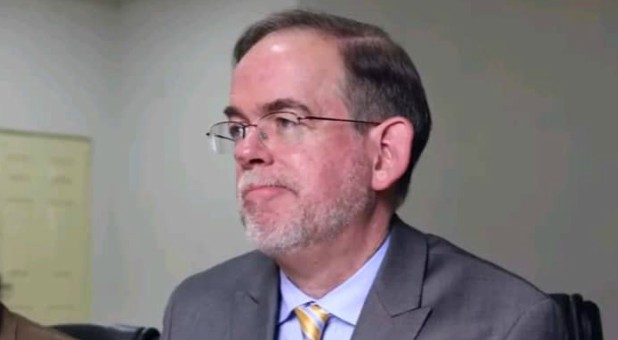Diplomat Sounds the Alarm on Rising Murders of Church Members
The acting U.S. ambassador to Nigeria has reiterated the call of his government to the Nigerian authorities to stop ongoing killings in the Middle Belt and the Northeast of the country.
Violence attributed to militant Fulani herdsmen reached a record high this year, with more than 1,800 deaths from January to June, according to Amnesty International.
And at the time of writing, reports of attacks on several villages in Barkin Ladi LGA have just come in: Abonong, Zayit, Mai Idontoro (Nafok), Bek and Ude.
WWM is also receiving first reports of the deaths of 50-year-old Reverend Adamu Gyang Wurim, of the Church of Christ in Nations (COCIN) in Abonong, his wife and three children, all reported burned alive in the local Church Council premises in Nafok (Mai Idontoro), Foron district.
Two months ago, a spate of attacks over three days—June 22 to 24— left more than 230 dead in 11 villages, in three local government areas of Plateau state. That violence was the latest in a series of attacks targeting predominantly Christian communities in the Middle Belt.
On Aug. 19, the acting U.S. Ambassador to Nigeria, David J. Young, went to Jos, capital of Plateau state, visiting an IDP camp where dozens of Christians displaced by the June violence have sought refuge.
He blamed the killings on what he identified as a reign of impunity:
“It’s clear that—and we know this—and the [Nigerian] government knows that as well, but it’s very important there must be a strong law enforcement response. I think there are lot of people who are doing good things and working hard. But there needs to be even more done, because it is clear that there is a climate of impunity, where people are committing these terrible crimes, and they’re getting away with it. They are not brought to justice”, he said to media that Sunday night.
The diplomat, an ordained minister in the U.S., also attended a fellowship with church leaders in Jos, where he spoke on “Living as a Christian in a multi-religious and multi-cultural context.”
“It is so important that there should be very strong efforts to make sure that people are brought to justice for these terrible crimes. It is also important to address the drivers of conflicts, to address opportunity, fight poverty and provide jobs and hope for young people because definitely young people are getting into terrible groups. They really need to be part of the future and as such need mentoring and parenting.”
In April, President Donald Trump decried the killings of Christians in Nigeria as he met with the country’s President Buhari in Washington DC.
The Nigerian president, who is seeking a second term in the upcoming February 2019 elections, has been criticized by many, including human rights groups, clerics and analysts, for his perceived lukewarm attitude towards the herdsmen responsible for the deadly attacks in the Middle Belt and north-eastern states.
Amnesty International (AI) has accused the Nigerian government of not doing enough to curb the violence. By failing to hold murderers to account, Nigerian authorities are encouraging impunity that is fueling rising insecurity across the country, said Amnesty in a statement (June 28).
‘Nigeria: Authorities failing to tame bloody killings’ was issued just four days after the latest June violence.
More recently, the International Crisis Group, in a report on July 26, also expressed its concern over the conflict between farmers and herders, which it says has become the country’s gravest security challenge, claiming six times more lives than the Boko Haram insurgency.
‘Stopping Nigeria’s Spiralling Farmer-Herder Conflict’ calls on the government to “prosecute perpetrators of violence, disarm ethnic militias and local vigilantes, and begin executing long-term plans for comprehensive livestock sector reform.”
Violence Within Past 10 Days
On Aug. 21, at about 1 a.m., suspected Fulani militants attacked Nasara Baptist Church in Guguwa near Rigasa in Kaduna, shot dead Rev. Hosea Akuchi and abducted his wife Talatu Akuchi. Her whereabouts remain unknown.
On Aug. 22, 2018, the Christian Association of Nigeria (CAN) condemned the ongoing violence: CAN “notes with pains and disappointment the state of insecurity in the country. Nowhere is safe and secured, as terrorists, rampaging Fulani herdsmen, killer bandits, armed robbers, kidnappers and other hoodlums are operating unchecked while our security agencies seem busy with elections, forgetting that leaders are elected to rule over the living”.
This article originally appeared on World Watch Monitor.














































